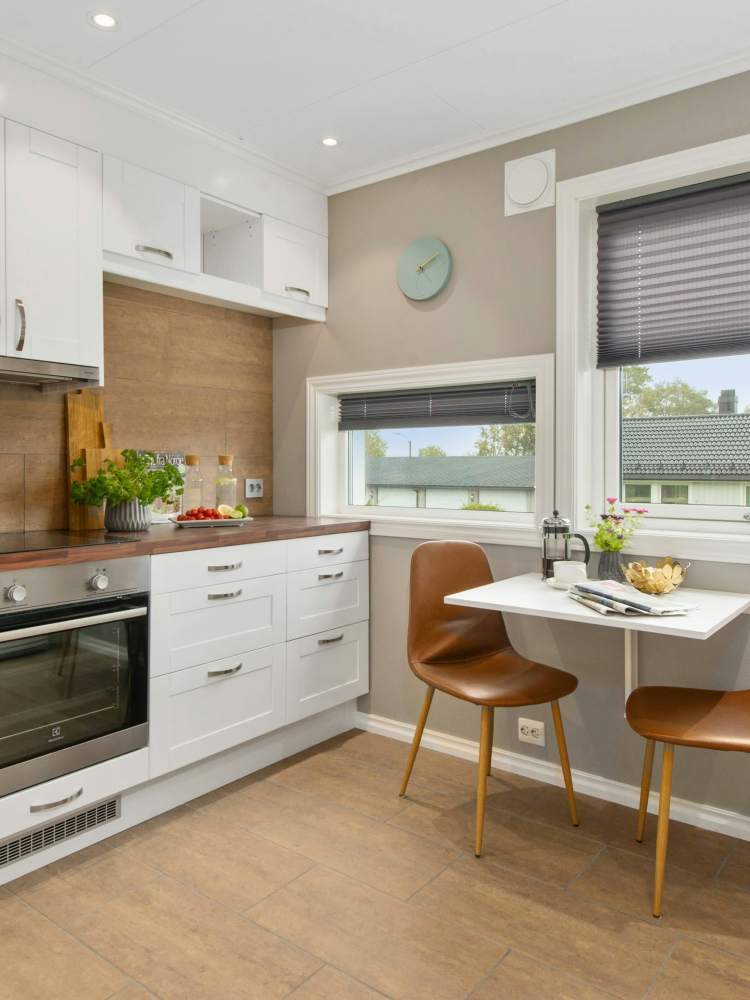Small-town Southern charm and big city industry: Winston-Salem, North Carolina is the double city that packs a punch. Founded in the 1850s and 1750s respectively, Winston and Salem were officially joined in 1913 and keep their colonial heritage to this day. The town may be most well known for its industrial contributions, being home to such well-known companies as Reynolds American (Camel cigarettes), Wachovia Bank & Trust, Hanes clothing company, and Krispy Kreme doughnuts. In addition to its manufacturing fame, Winston-Salem is a well-aged and highly artistic berg with a diverse, population. While there are many stand-alone houses and town homes, apartments are still very easy to find in the city, so let’s give you the scoop on renting in Winston-Salem!
Pricing and Quality
Some housing types here are more prominent than others
Small-town Southern charm and big city industry: Winston-Salem, North Carolina is the double city that packs a punch. Founded in the 1850s and 1750s respectively, Winston and Salem were officially joined in 1913 and keep their colonial heritage to this day. The town may be most well known for its industrial contributions, being home to such well-known companies as Reynolds American (Camel cigarettes), Wachovia Bank & Trust, Hanes clothing company, and Krispy Kreme doughnuts. In addition to its manufacturing fame, Winston-Salem is a well-aged and highly artistic berg with a diverse, population. While there are many stand-alone houses and town homes, apartments are still very easy to find in the city, so let’s give you the scoop on renting in Winston-Salem!
Pricing and Quality
Some housing types here are more prominent than others. Detached single-family houses are very common, with apartment complexes and larger apartment or condominium buildings plentiful, as well. Smaller apartment buildings and town homes are also present, though not as abundant. In most areas of the city, apartments rarely go over $700 - $900 a month for a 2 or 3 bedroom, and can be as little as $300 - $400 a month depending on where you’re renting. Houses of the same caliber are slightly more expensive, going from $500 to the mid-1000s, again depending on location. As far as quality goes, what you’ll find depends on where you’re looking and whom you’re renting from:
-
Appliances and Amenities: Complexes or larger, newer apartment buildings often have a pool, patio, or other recreational facilities, and will usually have a parking lot or covered parking area. Some apartments come with a washer and/or dryer already installed, but many of them simply have hook-ups for you to provide your own. Similarly, most places will provide kitchen appliances such as a stove and refrigerator, but anything beyond that isn’t always standard.
-
Utilities: Air conditioning is a given in any apartment for the hot summer months. Central and window A/C units are plentiful, and heating comes in a variety of types, including electric, central, or oil-pump. It isn’t common to have many utilities included, except for water or trash, especially in smaller buildings.
-
Pets: Some places will allow pets (and yet many don’t). A deposit of up to $200 is often required, but watch out for breed or weight restrictions. If you have a lovable furry member of the family, always ask about the building’s pet policy to make sure they’ll be able to come with you.
Websites (Like the one you’re already on) and apartment listings both on and offline are your best bet for finding your place. Luckily, it’s not uncommon to find rent specials and low security deposit deals in Winston-Salem, especially in larger complexes and communities or buildings that are owned by larger management companies.
Winston-Salem has a population of over 200,000, brimming with families, married young professionals, and college students attending the city’s many universities. The neighborhoods range from high-class historic neighborhoods to quaint, tree-lined streets, to more urban rental territory. On the whole, the west side is statistically more desireable and thus, more expensive. Here’s a taste of some of the many communities around the city:
Downtown/ Arts District:
The center of the city, rather unsurprisingly, sports mostly renters. Condos and apartment complexes of all kinds stack upwards in the hip, urban downtown area. The arts district along Trade Street, full of galleries, studios, and shops for every craft, is dotted with colorful murals.
West End: One of the most expensive areas, West End was once home to the wealthy tobacco and textile families, including R.J. Reynolds, himself! Its range of historic houses date back to the late 19th and early 20th centuries, with many apartments in the area, as well. Motorized trolleys take folks to West End’s abundant shopping and dining in this section of Winston-Salem.
Ardmore: This is the largest historic district in the city. It’s a neighborhood of old cottages and bungalows, with some smaller apartment complexes. Ardmore is bordered by two of the city’s regional medical centers, which employ a large portion of the population. If you move here and don’t have a job in the medical sector, don’t worry about it too much, the only possible issue would be not getting a medical joke, should one come up.
Old Salem: The site of Salem’s original settlement, with 70% original-construction houses and buildings dating back to the 1750s. This area has mostly single-family homes with some apartments, and contains many museums and historic cultural or tourist attractions. If you ever find yourself complaining about said tourists, we’ll try to refrain from dropping a “We told you so” bomb.
Buena Vista: Wealthy and suburban, this neighborhood sports beautiful streets lined in oak trees, and we all know how cool those look. The area deals mostly with houses and smaller apartment buildings, so if you’re a family looking to relocate, kids and all, this is probably your best bet, assuming it fits your price range. The dwellings here aren’t as old as many other parts of the city, but are more on the expensive side.
Peace Haven: A quiet area (with a name like “Peace Haven,” who would’ve guessed?) with an equal number of homes and apartments. Here, you’ll get some easy access to downtown and the nearby shopping districts, including Hanes Mall, one of the largest in North Carolina.
As a whole, Winston-Salem is a very suburban city. Most inhabitants travel by car on a daily basis, though the Winston-Salem Transit Authority does run 27 weekly bus routes that operate from early morning hours to midnight Monday through Saturday and serve hundreds of patrons a day.
Winston-Salem is a charming little city of many talents and trades. So whether you’re moving there to settle down in a quiet area with your family, jump on the industrial train, or just sit on the porch in your rocking chair and soak up the North Carolina charm, you’re bound to find your new digs in no time.





